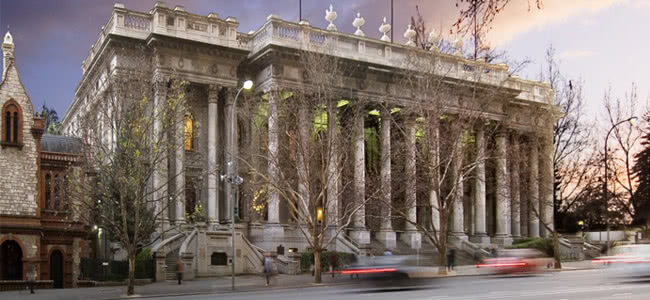Following months of uncertainty in South Australia, the state government has moved to introduce a new category if liquor licence for small venues that it hopes will foster a laneway bar and music scene similar to those found in Melbourne.
According to The Shout, the new licenses, introduced in the Liquor Licensing (Small Venue Licence) Amendment Bill 2012, aims to tackle the hurdles small venues face by reducing costs and paperwork, making it easier for “entrepreneurs to set up a variety of licensed businesses such as small specialist bars and hybrid café bars”, according to SA Premier, Jay Weatherill.
The announcement comes after the idea for the new category of license was first floated by the South Australian Government in June, after backlash from the introduction of hefty new liquor licensing fees that saw venues paying upwards of $5,000 in order to continue trading and serving alcohol after 2am; vastly affecting the business and culture of many Adelaide-based clubs and live music venues.
Premier Jay Weatherill also introduced a music expert to work in collaboration with the Premier’s office to develop strategies of overcoming newly introduced planning and licensing issues, with Glastonbury booker Martin Elbourne tasked the job of bridging the gap between musicians and policy makers.
“I believe Adelaide has already begun to embrace this culture and we have had some very successful venues established over the past few years such as udaberri, Café Troppo and Cork Wine Café, but costs have often been barriers for young entrepreneurs,” said Premier Weatherill after introducing the bill.
The government believes the new license category will lower the barrier to entry for new operators and help strenghten the overall hospitality industry in Adelaide. The proposed license would allso bars to operate from 11am to midnight with a maximum capacity of 120 patrons.
For the initial 12-month period the license will only be available to businesses looking to operate in the Adelaide CBD, but there are plans to extend the reforms to other areas should the Adelaide experiment prove a success.
“The only negative thing I will say is that it is long overdue. But, it is a good step forward in recognising that Adelaide needs the sort of venues that have been popping up in Melbourne and Sydney over the last few years,” said Shaun Pattinson, operator of Adelaide small bar, Cushdy.
The Weatherill Government developed the plans after extensive consultation with current venue operators, who are facing an impending regulatory tsunami with the proposed new Late Night Trading Code of Practice which will place new restrictions on the serving times, and quantities of alcohol in an effort to reduce alcohol-related violence and ensure a safer nightlife in the Adelaide CBD.
The new Code of Practice will restrict licensed premises from selling any shots or drinks containing more than 30ml of spirits after 2am, and a new lockout restricting any patrons from entrance after 3am. “Equipment – such as extra CCTV surveillance and metal detectors to screen patrons – to be made a mandatory requirement for any licensed venue operating between midnight and 7am.”
Additionally, all drinks served after midnight will be contained in plastic glasses, and the introduction of a ‘drinks marshall’ to patrol and monitor licensed venues; along with more equipment – such as extra CCTV surveillance and metal detectors to screen patrons – to be made a mandatory requirement for any licensed venue operating between midnight and 7am, introduced as part of the Late Night Trading Code of Practice.
But the issue of new new liquor licensing fees and late night trading restrictions has masked a deeper issue that South Australia has yet to face.
“In South Australia if a person performs in person on licensed premises – that is defined as ‘entertainment’ and regulated, but if you broadcast sport, gamble, or have recorded music, that is exempt from the strict, erratic and often archaic entertainment approvals process,” says Greens’ SA Arts spokesperson Tammy Franks MLC.
“Yet across the rest of Australia live performance is considered a normal activity in hotels, bars, restaurants, clubs and cafes. It beggars belief that South Australia persists with such old-fashioned liquor licensing laws.”
New South Wales had similar provision called PoPE, a development application that had to be lodged with the local council, to change the use of a premises from just a licensed venue to a place of public entertainment, and often costing in excess of $100,000.
But after numerous years of petitioning by the Raise The Bar campaign they got an early Christmas present in 2008 when the then New South Wales Planning Minister instructed councils that they can no longer require development consent for small scale live entertainment in pubs, bars, cafes and restaurants.
Thinker In Residence Martin Elbourne will no doubt hear from a number of stakeholders on these issues as he learns the scale and complexity of the problem facing Adelaide’s music scene.
But despite progress in some areas such as the new category of liquor license, musicians and operators in the City of Churches appear to have a long road ahead.




































